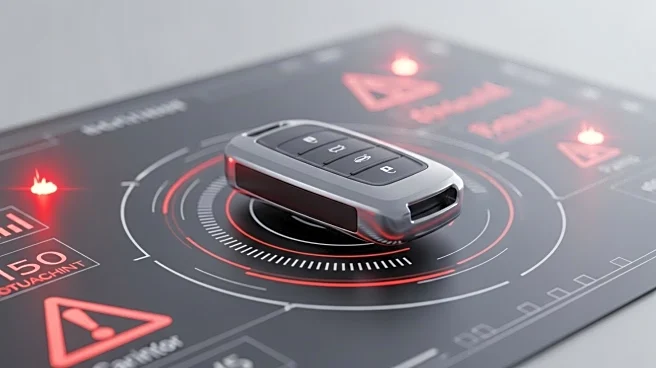What's Happening?
Jaguar Land Rover (JLR), a major automotive manufacturer owned by Tata Motors, has been significantly impacted by a cyber attack that occurred on August 31. This incident has forced the company to halt production for over two weeks, with operations expected to resume by September 24 at the earliest. The production stoppage primarily affects the Land Rover brand, as Jaguar has already reduced its lineup to a single model, the F-Pace, which is also being phased out in favor of a new electric GT. Under normal conditions, JLR produces more than 1,000 vehicles daily, highlighting the scale of disruption caused by the cyber incident.
Why It's Important?
The cyber attack on JLR underscores the vulnerability of the automotive industry to digital threats, which can have substantial operational and financial repercussions. The halt in production not only affects JLR's immediate output and revenue but also impacts the supply chain, including suppliers and dealerships. This incident highlights the growing need for robust cybersecurity measures in the automotive sector, as companies increasingly rely on digital systems for manufacturing and operations. The disruption could also delay the company's transition to electric vehicles, a critical strategic shift for JLR as it seeks to compete in the evolving automotive market.
What's Next?
JLR aims to resume production by September 24, but the timeline is contingent on resolving the cyber attack's aftermath. The company will likely conduct a thorough investigation to understand the breach and implement stronger cybersecurity protocols to prevent future incidents. Stakeholders, including investors and partners, will be closely monitoring JLR's response and recovery efforts. The incident may prompt other automotive companies to reassess their cybersecurity strategies to safeguard against similar threats.









